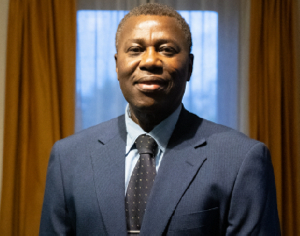West African leaders ended a day-long summit in Mali on Thursday without a deal to soothe the country’s escalating political crisis.
Five of the region’s leaders met Mali President Ibrahim Boubacar Keita and leaders of a protest movement clamouring for his resignation, as a long-running jihadist insurgency threatens to throw the country into chaos.
But the intervention failed to seal a deal and Niger’s President Mahamadou Issoufou — at the talks along with the leaders of Senegal, Ivory Coast, Ghana, Nigeria — said Western African bloc ECOWAS would hold a summit on Monday.
“Nothing has moved for the movement,” said one of the protest leaders, imam Mahmoud Dicko, after holding talks with the presidents.
Earlier as the foreign leaders arrived on Thursday morning, a small group of demonstrators gathered outside the airport.
“We’re here to demand IBK’s resignation and ensure our comrades who have been killed are not forgotten,” said Yaya Sylla, a young protester, using the acronym by which Mali’s leader is known.
The June 5 Movement, named after the date when the protests began, has tapped into deep anger over Keita’s perceived failure to tackle the dire economy, corruption and the eight-year jihadist revolt.
Malians are also incensed at the disputed outcome of long-delayed parliamentary elections in March and April that handed victory to Keita’s party.
The summit came on the heels of a five-day mediation mission from the 15-nation Economic Community of West African States (ECOWAS), which ended on Sunday without reconciling the two sides.
The West African leaders discussed proposed solutions that had been crafted in behind-the-scenes talks between the president and opposition this week.
The Institute for Security Studies think-tank warned on Thursday that there was an “unfavorable prejudice” towards the presidents, however, with some perceiving the leaders as protecting their own narrow interests.
“The search for solutions will have to take into account the need to improve the daily lives of Malians,” the think-tank said.
Deepening crisis
Keita, who came to power in 2013, has come under increasing pressure to end Mali’s long-running jihadist conflict.
The poor nation of some 20 million people has been struggling to contain an insurgency that has driven hundreds of thousands of people from their homes since 2012, despite the presence of foreign troops.
In the latest violence, a French soldier was killed and two others were wounded in a suicide car bomb attack in northern Mali on Thursday, according to France’s presidency and the French army.
But much of the current tension was sparked in April, when the constitutional court tossed out 31 results from the parliamentary elections, benefiting Keita’s party and sparking protests.
Tensions then ratcheted up into a crisis on July 10 when an anti-Keita rally organised by the June 5 Movement turned violent.
Three days of clashes between protesters and security forces left 11 dead and 158 injured in the worst political unrest Mali had seen in years.
Seeking a way out, ECOWAS mediators suggested forming a new unity government including opposition members and appointing new constitutional court judges who could potentially re-examine disputed election results.
But the June 5 Movement had already rejected any outcome that did not involve Keita’s departure.
Possible compromise?
Despite the apparent failure of the ECOWAS mediators, the president’s camp and opposition figures had quietly been talking all week and the June 5 Movement notably suspended protests ahead of the forthcoming Eid festival.
Brema Ely Dicko, a sociologist at the University of Bamako, had suggested the opposition might be prepared to accept Prime Minister Boubou Cisse’s resignation instead of Keita’s.
“The M5-RFP is obliged to keep up the pressure to at least get something,” he said, using the opposition coalition’s formal acronym.
A European diplomat in Bamako who declined to be named said that the opposition may have overplayed its hand in demanding Keita’s departure.
“Nobody wants to open the door to a period of political instability in Mali, which remains the epicenter of the Sahel security crisis,” he added.
Africa News of Friday, 24 July 2020
Source: africanews.com













